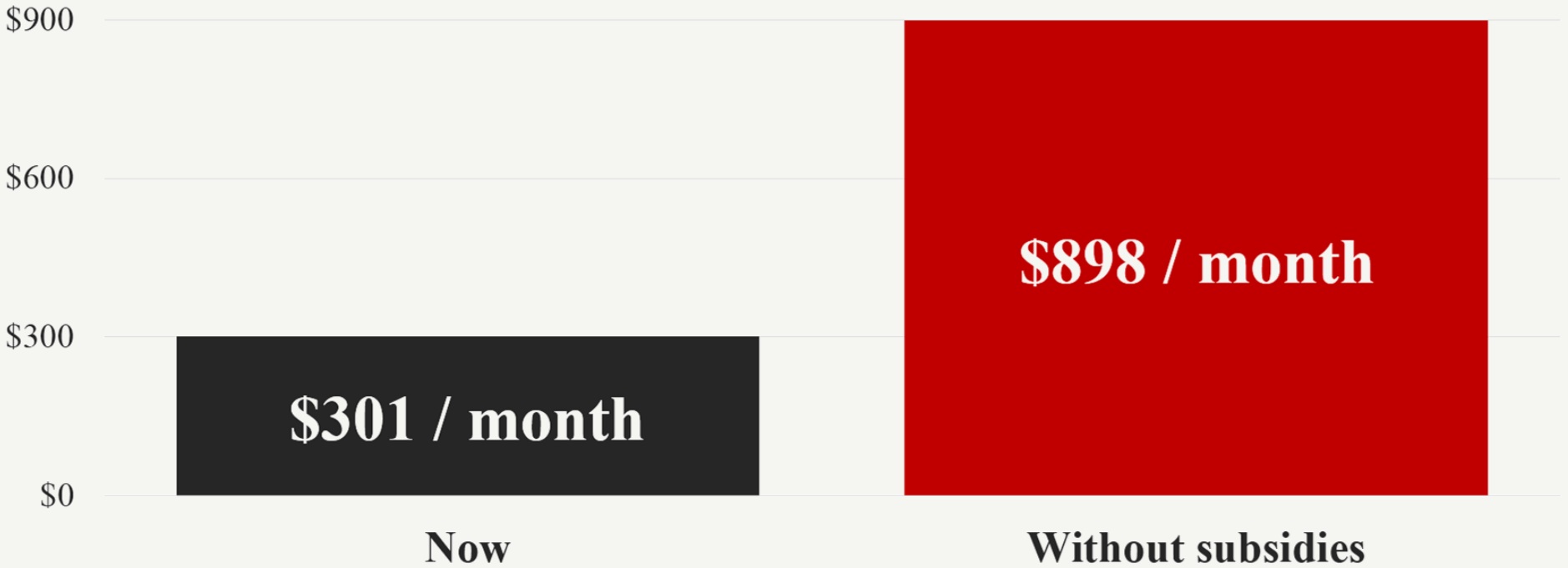Administration Puts HealthCare.gov Enrollees at Risk
Last year the Obama administration put Americans at risk as it ignored numerous warnings about the readiness of HealthCare.gov. Its decision to go ahead with the website caused confusion and frustration at the same time Obamacare was causing people to lose their insurance. This year, the administration has created another large risk for federal exchange enrollees. It’s been providing potentially unlawful tax credits for people to buy insurance in states with federal exchanges.
The Supreme Court will rule on the legality of these tax credits in the case King v. Burwell. If the credits are disallowed, out-of-pocket premiums for federal exchange enrollees would skyrocket to reflect Obamacare’s true cost. The court could also require people to repay tax credits already received. The Obama administration has decided not to inform current enrollees or people browsing plans on HealthCare.gov of the potential ramifications. In contrast, the administration has provided insurers with protection from such a ruling.
The administration’s failure to inform customers is profoundly irresponsible. Millions of people are making financial decisions about their health insurance coverage without full knowledge of the risks of enrolling through HealthCare.gov.
Out-of-pocket premium costs

Source: Kaiser Family Foundation. Calculated using median family income. Four people in a family; two parents, age 45; two minor children. National average for second-lowest cost silver plan in 2015.
IRS Rule Conceals Obamacare’s True Cost
Obamacare’s many mandates and regulations significantly increased premiums in the individual insurance market – by an average of nearly 50 percent between 2013 and 2014. Obamacare’s tax credits were created to paper over the new higher expenses by passing much of the cost from policyholders to taxpayers. Without the tax credits, people will be confronted with the law’s true cost and will face much higher premiums.
Obamacare’s plain language restricted these tax credits to exchanges established by states. They were meant to be an incentive to get states to accept the law and set up their own exchanges. The IRS ignored the text of the law and effectively rewrote the statute. It issued a regulation that allowed tax credits to go to insurance plans purchased on an exchange, even if it was the federal exchange and not one established by a state. Already, two federal courts have found the IRS rule to be illegal. The IRS likely authorized hundreds of billions of dollars in taxes and spending beyond what Congress allowed.
Since the tax credits are linked to the penalties for the employer and individual mandates, the rule also extends those penalties to states that opted not to create a state exchange. If the Supreme Court invalidates IRS’s rule, many people will have signed up for coverage with a mistaken belief that the individual mandate applies to them.
Propping up Obamacare
The administrator of the Centers for Medicare and Medicaid Services, Marilyn Tavenner, testified at a House hearing last week that the administration does not plan to educate the American people about the potential ramifications of King because “this is not a closed case.”
While the administration fails to inform people about the possible ramifications of King, it has created an escape hatch for insurers. Inside Health Reform reported in October that contracts between CMS and insurers who sell in the exchanges include a new clause this year. CMS now lets insurers get out of the contracts if the tax credits stop flowing in federal exchanges. The rationale is that insurers based their prices on the tax credits being available. The article also reported that “the new clause was inserted at the request of issuers, and that both parties believe the clause is critical.” In last week’s hearing, Tavenner testified that CMS negotiated these contracts with insurers over the summer – and that every contract has the same clause.
That decision fits a pattern. The White House intervened to increase the likelihood and size of a taxpayer bailout of insurers through the risk corridor program. It also made payments to insurance companies through Obamacare’s cost-sharing reduction program, despite the lack of congressional appropriations for the payments. The Congressional Budget Office estimated in April that these payments will total $175 billion over the next decade.
The administration is propping up the law and obscuring its true costs from taxpayers. Americans have made decisions as if the tax credits will be available all of next year, despite the challenge before the Supreme Court in King. By failing to inform enrollees that these payments may disappear, the administration could cause serious pain for Americans next year.
Next Article Previous Article
